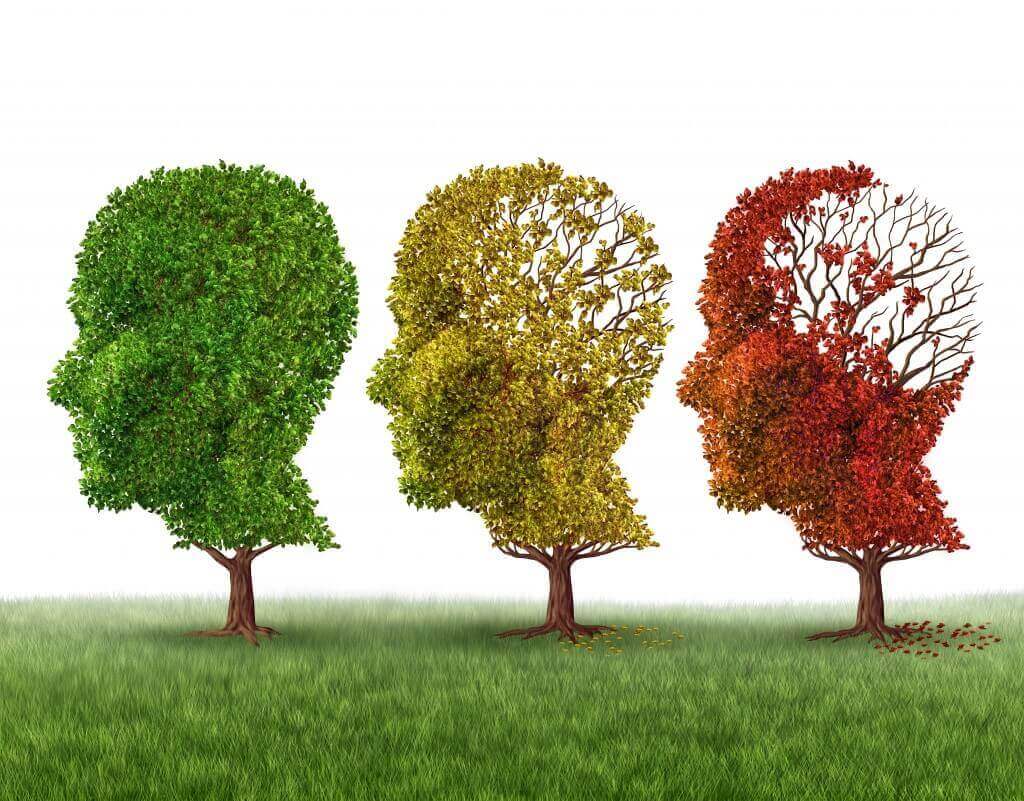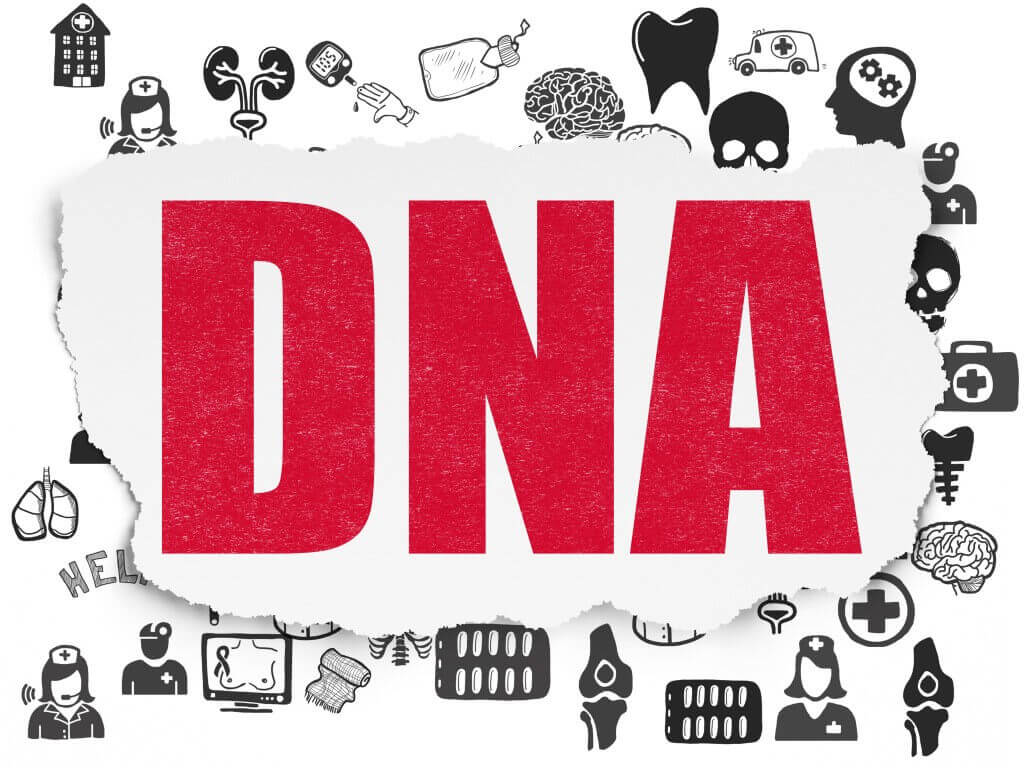Alzheimer’s Disease: Losing Memories of a Lifetime
Sep 21, 2017
5306 Views
My friend and I were having a drink at the bar when he jokingly asked me what would I prefer to have when I grow old – Parkinson’s or Alzheimer’s.
I laughed and replied that I would prefer to have Parkinson’s. I would rather spill a few drops of whisky than forget where I kept the damn bottle!
This joke often brings a wry smile. After the punch line, there is a resounding silence and apprehension about two neurodegenerative diseases that affect the elderly. And yet, the mention of Alzheimer’s brings a plethora of stronger emotions, mostly due to misinformation.
We are a sum total of all the memories we have gathered through our lifetimes and it is these memories that are like the warmth of the sun on our faces when we grow old. But what if we slowly forget all of these memories? What if we stop recognizing even our loved ones, people we lived and laughed with?
Alzheimer’s disease (AD) is the most common type of dementia (a syndrome, characterised by a decline in cognitive function), contributing to 60 to 70% of the cases. AD is an irreversible, progressive brain condition, with a specific modus operandi. It gradually eats away the brain tissue, thus weakening memory, thinking and reasoning abilities. This condition worsens to a level where performing daily tasks becomes a challenge.
AD is usually observed in people above the age of 65 years (Late Onset Alzheimer’s Disease- LOAD), but can be seen in people below 60 years of age (Early Onset Alzheimer’s Disease- EOAD). According to the WHO, at least 47 million people are living with dementia and an estimated 75 million people will develop the syndrome by 2030 [1].
What happens to the brain?
The brain has specific centres that are responsible for specific tasks. Some of these help control our ability to hear, smell, see, taste and touch, while others are involved in high-end jobs like memory storage, thinking and other cognitive functions. In a normal brain, the nerve cells communicate with each other to ensure smooth functioning of the entire system. In case of AD, this coordination is lost. The damage to the brain begins in the ‘hippocampus’ region that is responsible for memory creation, spreading to other parts of the brain that regulate thinking and reasoning abilities. Anomalous clumps of proteins (amyloid plaques) and tangles of nerve cells (neurofibrillary or tau tangles) form in the brain and are a distinguishing characteristic of AD.
What are the causes and risk factors associated with Alzheimer’s?
While the exact causes of AD are not yet known, experts have found important risk factors that can be considered as the sources of the symptoms. Of these, age seems to be the most significant factor. The risk for AD increases with age. Another major contributing risk factor is a family history of this disease; genetics plays a role in determining your chances of getting AD. Also, females are more prone to get this condition than males. Other risk factors such as severe head injuries, Down syndrome (a genetic disease), high cholesterol and high blood pressure are also likely to increase the risks.
Can AD be prevented?
According to a study conducted by the experts from the University of Cambridge, UK, about one-third of AD cases can be prevented [2, 3]. By analysing data from population- based studies, they shortlisted seven major risk factors that included lack of exercise, low education/ awareness, diabetes, high blood pressure and obesity in middle age, depression, and smoking. The team then studied how limiting these factors changed the number of AD cases.
Against a global background, low awareness was found to be the highest contributing risk factor, followed by smoking and lack of exercise. They also projected that reducing the risks caused by each of these factors by a mere 10% could prevent around 8.3% of the worldwide AD cases. All these seven factors are controllable and by modifying something as simple as exercise and diet can prevent AD. Apart from lifestyle changes, a fair understanding and knowledge of the disease, its symptoms and management plans will prove to be valuable and effective in controlling the cases.

Stages and Symptoms of AD
AD progresses steadily in stages described as ‘Mild’, ‘Moderate’ and ‘Severe’. Deterioration of the brain usually starts some years prior to memory loss and related symptoms. This is the pre-clinical stage, wherein the person does not show any physical symptoms of AD. Symptoms in all the three stages are more or less the same, with their intensity increasing with each stage.
Mild stage: This stage usually lasts from 2 to 4 years and symptoms include the following:
- Less energy and will to do activities
- Spending time idly
- Taking a longer time to complete daily tasks
- Having trouble with language or thoughts
- Forgetting incidents that took place a recently
- Mood swings
- Wandering or getting lost in familiar surroundings.
These symptoms have been related to AD, but several other sources like thyroid malfunction, stress, depression, drug abuse can produce similar symptoms. Thus, these symptoms do not necessarily spell out AD. A professional opinion is a must to confirm the case.
Moderate stage: It lasts from 2 to 10 years. Loss of memory is greater and daily activities are hampered. You have to watch out for the following symptoms:
- Speech, use of words may appear to be incoherent or digressive.
- Trouble with multi-tasking
- Hallucinations
- Extreme emotions of anger, sadness, agitation
- Confusion regarding place, date, time
- Trouble identifying loved ones, coping up with new situations
- Difficulty in sleeping
- Repeating statements or questions
At this stage, the person realises their situation.
Severe stage: It lasts from 1 to 3 years. The individual is completely dependent on others. Symptoms include:
- The incapacity to communicate
- Complete loss of time; confusion regarding the past and present happenings
- Trouble moving; loss of bladder and bowel control
- Difficulty swallowing, weight loss
- Seizures
- Skin infections
- Increased hallucinations and moods
How is AD diagnosed?
AD is characterised by memory loss, which is also a part of natural aging. However, other persistent symptoms like depression, mood swings, change in speech work as warning signals and only a doctor will be able to provide a confirmed diagnosis. Based on the personal and family history, the mental state of the patient as well as performance in a test to determine cognitive functions and behavioural pattern, a diagnosis of AD can be made. Other tests like a CT scan, MRI scan and neuropsychological (through question-answer sessions) tests can also help in diagnosis.
Are there treatments available?
In spite of relentless research, till date, there are no treatments available for AD. However, interventions that treat symptoms have proven to be useful in many cases. Depending on symptoms, doctors often prescribe drugs to control mood swings, anxiety, aggression, anger bouts or hallucinations. Certain drugs can be given to control the breakdown of a chemical in the brain; but these come with severe side-effects and are prescribed by doctors after a thorough examination and diagnosis.

Are genetic factors at play here?
EOAD has been associated with the inheritance of at least one of the mutated genes– APP, PSEN1 and PSEN2. These represent about 5% of the AD cases. LOAD is more complex in nature and is caused when genetic factors work in tandem with environmental and lifestyle factors. This phenotype is influenced by multiple genes. One of the strongest genetic risk factors for LOAD is the ε4 variant of the APOE gene [6]. Nevertheless, Genome- wide Association Studies (GWAS) have revealed multiple gene variants that can cause LOAD [4]. Other genes of interest include TOMM40 and TREM2 — both these genes are implicated in key functions like cellular transport and inflammatory response (which is believed to protect against plaque formation).
Further research into identification of gene variants can enable modern genetic testing methods for diagnosis of AD.
AD awareness!
Come September and it is AD awareness month! 21st September is celebrated as World Alzheimer’s Day. This was first launched in 1994, at the tenth annual conference of Alzheimer’s Disease International (ADI). ADI is an umbrella organisation and has 90 other Alzheimer organizations from all over the world. An initiative of the ADI, World Alzheimer’s Day is observed all around the world. Many organizations working in this field also participate by organizing events on that day. Such coordinated events aim to catch the attention of policy-makers and governments to emphasize the state of affairs as the global population ages. This month unites people the different governments, healthcare providers, researchers, families and media. Every year, they focus on sending out one message that educates people regarding this disease and removes misapprehensions [5].
Since there is no medical cure, Alzheimer’s disease can only be managed after its onset. This can be done through well-designed coping strategies for the affected individuals and their families. Early diagnosis can delay and reduce the intensity of the disease. Lifestyle changes can also do wonders.
What do your genes say about Alzheimer’s? Don’t know? Well then, why delay?
Get a Genomepatri today, and embark upon the ultimate journey of self discovery – together with genetic counseling sessions and a team of experts to help interpret your data, take control of your life today!
References:
- http://www.who.int/mediacentre/factsheets/fs362/en/
- Brayne C et al. Potential for primary prevention of Alzheimer’s disease: an analysis of population-based data. Lancet Neurology 2014; 13(8): 788-794.
- http://www.webmd.com/alzheimers/news/20140714/study-1-3-alzheimers-cases-preventable#1
- Tanzi RE. The Genetics of Alzheimer Disease. Cold Spring Harb Perspect Med. 2012; 2(10): 1-10.
- https://www.alz.co.uk/world-alzheimers-month/about
- Corder E. H. et al. Gene dose of apolipoprotein E type 4 allele and the risk of Alzheimer’s disease in late onset families. Science 261, 921–923 (1993).

